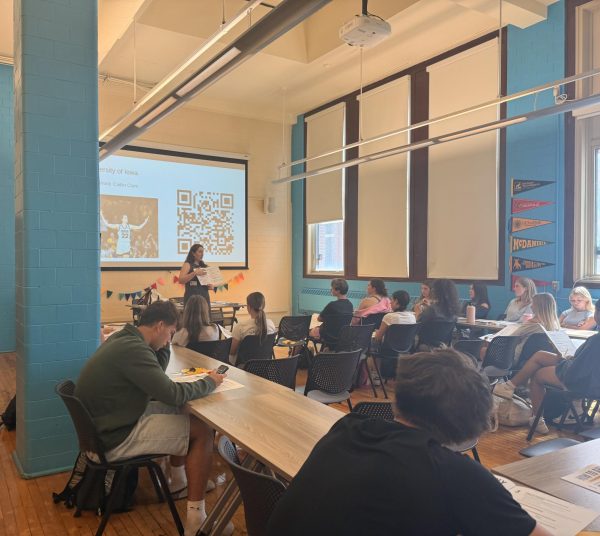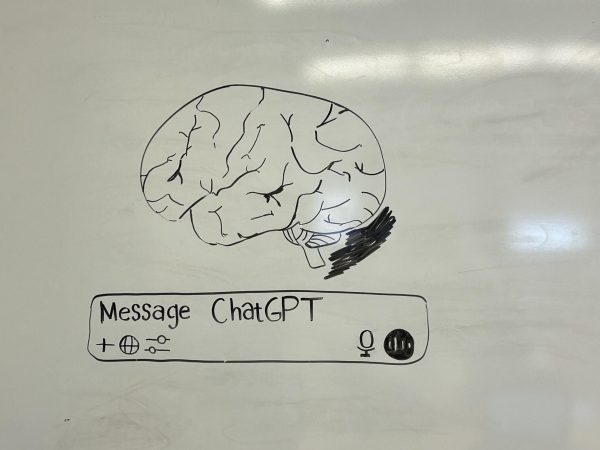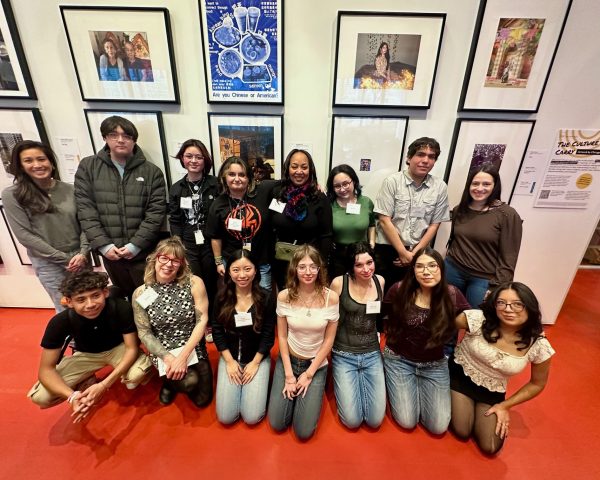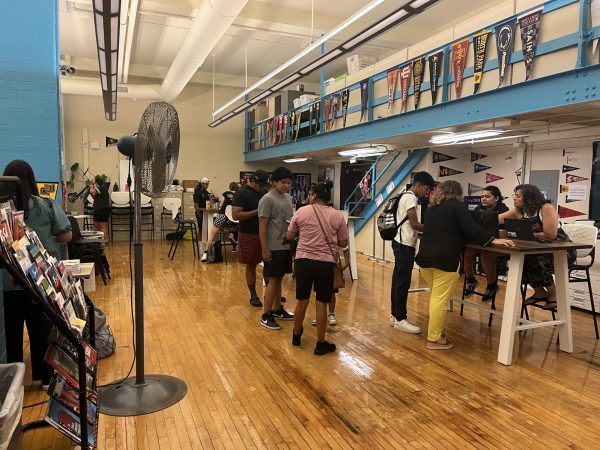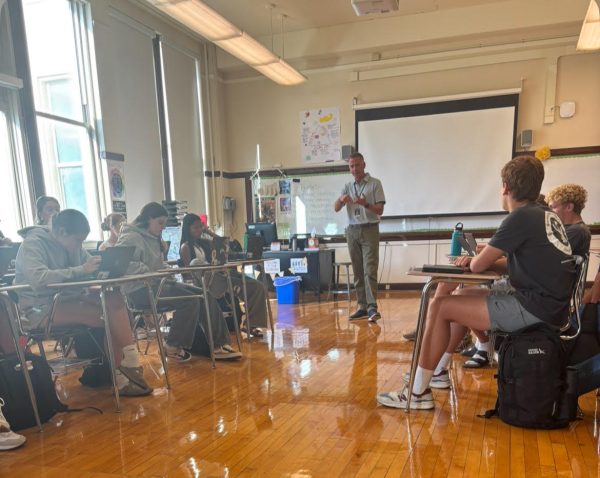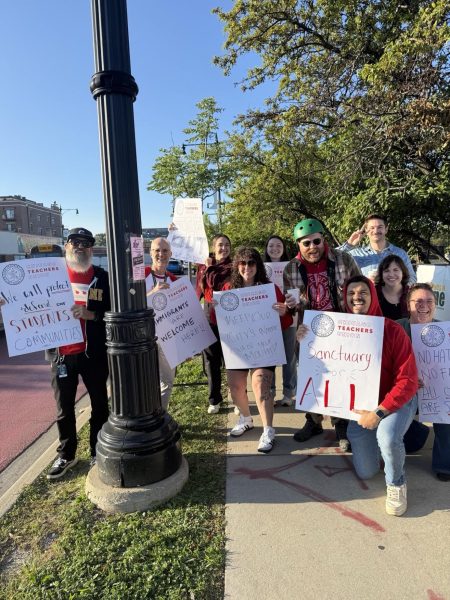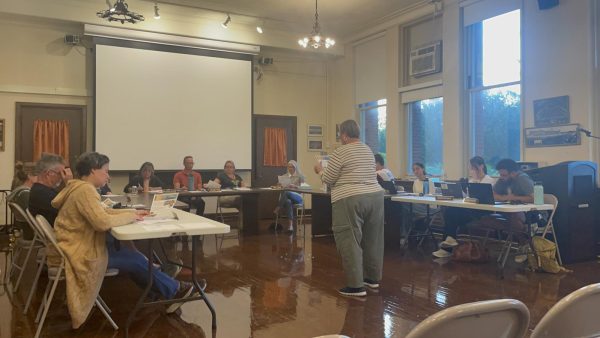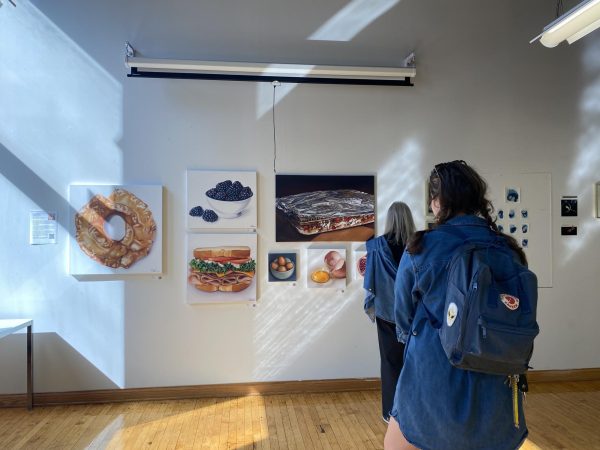PTSO initiative aims to bring more tablets, Chromebooks to classrooms
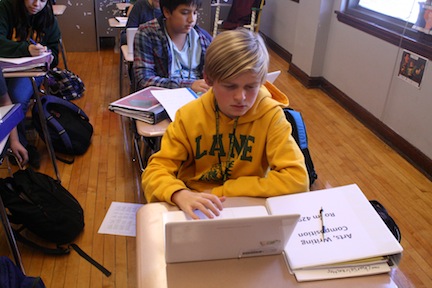
Charlie Waechter uses a Chromebook in Language Arts class
Lane has launched an effort to supply tablets to every student for the 2015-2016 school year.
The PTSO-led effort, called “One to One” is asking for donations from families, alumni, and local businesses at a suggested amount of $500 – the average cost of a tablet or Chromebook.
The fundraising appeal, written by Dr. Dignam, explains that Lane needs to catch up with the many other top-ranked college prep high schools that have been transitioning from printed textbooks to e-textbooks.
The initiative is part of the PTSO’s Annual Appeal, which runs through April. Annual Appeals are a collaboration between Dr. Dignam and the PTSO to fund a special need at Lane, according to Chairman of the Appeal Nancy McFadyen. During last year’s appeal, they raised money for Smart Boards and equipment for the Makers Lab.
Lane has already purchased 1,000 Chromebooks of the 4,000 Dr. Dignam says are needed so that every student can use them. They won’t be able to be taken home.
“Our goal is to raise $100,000. We are at $40,000 and hope to be halfway by December 31st to take advantage of the year-end tax benefits,” McFadyen said.
Tablets have many advantages for schools. They have ability to hold hundreds of textbooks, notes, homework, and videos on one device. Also, e-textbooks cost on average 50-60% less than print textbooks in the long-run, according to a 2012 report from the Federal Communications Commission.
“We are slowly seeing more of the integration of technology in the classroom that engages the students and allows teachers to provide immediate feedback,” Assistant Principal Mrs. Anderson said.
Because publishers can revise e-textbooks frequently at little additional cost, they stay up to date far more easily than conventional textbooks.
“For historical purposes, it is very important to have hard copies of things, but for learning purposes it is nice to have something that is constantly updating,” Dignam said.
Lane’s pilot program with tablets began in 2012 when the Academic Center purchased several dozen tablets as an initiative to bring more technology into the classroom.
The tablets were incorporated mainly to access applications, according to Academic Center Coordinator Ms. Lain.
They use the application “Digedu,” which is an online platform for delivering and interacting during lessons. The application does not yet have access to every textbook, but Lain says that is something that they are working towards.
“A teacher can make a lesson and have that lesson be available to students in all of these different areas. Whether it is at home, on their telephone, or in class,” Lain said.
“When we started with implementation, the students were able to hold on to the tablets themselves. They were able to take them home. They were also able to use the ones they already had at home,” said Anderson.
This year, the focus in the Academic Center classrooms has been Chromebooks, which are laptops made by Google that only run Google apps, such as Chrome, Gmail, and Google Drive.
They are primarily used in the English and social science classrooms because they have keyboards, whereas the tablets are used in the math and science classrooms. Lain said that on feedback forms, parents and students stressed the importance of stand-alone keyboards.
The Chromebooks and tablets are not assigned individually; rather they use them just in the classroom, to make sure everything runs smoothly.
“We had some instances where students dropped their tablets, sometimes they left them at home. To ensure that we were able to use them all the time, that they were ready to go, […] we use class sets,” Anderson said.
The Academic Center is also trying to implement more articles and even some e-books in the classroom rather than use textbooks.
Outside of the Academic Center, the AP Capstone classes use Chromebooks to look up facts and write research papers in class.
Another department that is implementing tablets is the music department. According to music teacher Mr. O’Brien, the department will receive 90 tablets for Advanced Honors Band, Jazz Band and Orchestra. The tablets will be used in concerts, assemblies, the musical, and graduation.
The use of electronic sheet music saves the school the cost of copying thousands of sheets of music, enables students to work outdoors without the worry of music blowing away, and preserves the costly sheet music that the department buys, according to O’Brien.
“Most people do not realize that there is quite a bit of new technology out there for performance groups and I am excited that we are finally trying it out,” O’Brien said.
Even so, some students are wary that the negatives will outweigh the positives.
“I feel like the iPads are a great idea, except over time the battery life will decrease dramatically,” said Rebecca Enamorado, Div. 658. “I feel like with them we will always have to have a backup.”
Skeptics point to the importance of printed text, arguing that staring at screens causes eyestrain. According to the American Optometric Association, handhelds are a part of Computer Vision Syndrome, which is associated with eyestrain, headaches, and blurred vision.
Another issue with tablets is reading comprehension. According to a 2008 paper by Jan Noyes and Kate Garland of the University of Bristol, proofreading performance was 20 to 30% slower on a computer screen compared to paper-based text.
Even though technology is becoming more prevalent in classrooms, the time where tablets completely replace textbooks is still far in the future. Most textbooks that are out now are still current, and there many textbooks that would not be able to work on this platform.
“We have such a wide array of electives here, that some textbook companies might not have an online component yet,” Dignam said.
“I think that it would be something that would be a slow progression once we see that we need a new textbook,” Anderson said.
The logistics of transitioning from textbooks to tablets will be another hurdle.
“Since we have so many students, and so many books, we want to make sure that we are fiscally responsible for ensuring that we are not overspending,” Anderson said.
Just as with college textbooks, used books are sold to outside companies for less than the original price, according to Anderson.
Even though textbooks will still be in the lives of Lane students for at least a few more years, the One to One initiative aims to bring more technology to the classrooms and put Lane on par with other schools in the district that have implemented e-learning.
“It’s an engagement tool — everybody uses technology these days. When we have a question, we Google it, so why not include that in the classroom,” Anderson said.
Your donations directly fund the Lane Tech student journalism program—covering essential costs like website hosting and technology not supported by our school or district. Your generosity empowers our student reporters to investigate, write, and publish impactful stories that matter to our school community.
This website is more than a publishing platform—it's an archive, a research tool, and a source of truth. Every dollar helps us preserve and grow this resource so future students can learn from and build on the work being done today.
Thank you for supporting the next generation of journalists at Lane Tech College Prep!
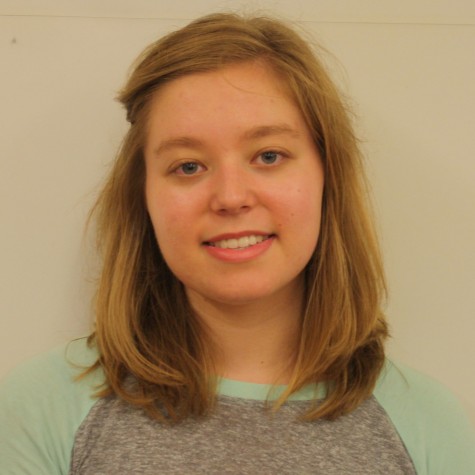
Annie Zorn is a senior at Lane. She is a managing editor for The Warrior. She also writes for The Young Chicago Authors publication and The Chicago Beat....

